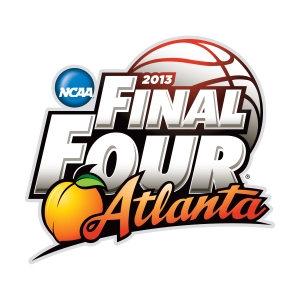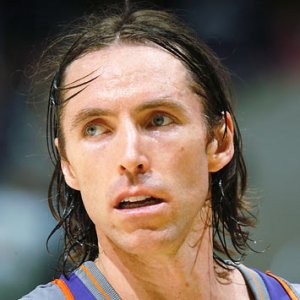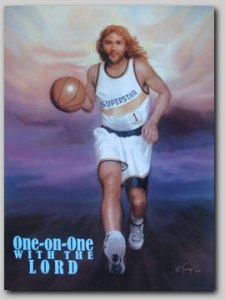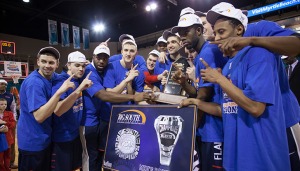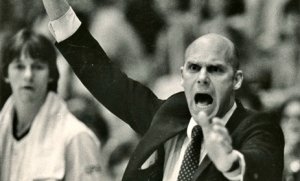Let’s just face it, office production is measurably down today. Shipments will be a few minutes late. Invoices are on hold. The staff will be a few minutes late for today’s lunch meetings. After processing all of the conference tournament championships from yesterday (my Buckeyes won, in case you missed it!), considering the match ups, perusing conference strengths, deciding which mascot they like better, and listening to the experts’ take on things . . . millions of men, women, and children are busy filling out their college basketball brackets right now. It is the creme de creme of American sports: 68 teams make the initial cut, but only one will be left standing. It’s sudden death. It’s elimination. It is survival of the fittest. It epitomizes the American ethos: for better or worse. And somewhere John Calipari is prepping for the NIT.
I have been filling out an NCAA tournament bracket ever since I can remember. I’ve probably lost a hundred dollars or so over the years (I’m guessing $5 a year over 20 years . . . pretty big stakes). Once I’m done typing out this blog entry, I’ll fill out my 2013 attempt. It always takes awhile to decide whether to pick with your mind . . . or your heart (Buckeyes all the way!)
This year, I find myself knee-deep in studying sports and religion and it’s just got my head all screwed up when it comes to my love of sports. This bracket is no different. This morning I started wondering how Jesus would fill out his brackets (I mean, if you Calvinist are right, it wouldn’t be much fun to be in his pool – but, alas, as an Arminian, I do hold onto some hope I could beat his bracket). This all got me wondering, What if Jesus set out to pick with his heart – who would he want to win?
We all know Jesus would be a basketball fan, right? I mean James Naismith was a freaking chaplain for Kansas! The game was invented at a YMCA (Young Men’s CHRISTIAN Association!) With his flowing locks, Jesus was born to be a point guard. I’ve often wondered what it would be like to play Jesus one-on-one, but we’ll save that discussion for another day.
Today, I’m wondering what his bracket would look like. It seems to me, obviously, it’s going to have a lot to with how you understand Jesus. If you espouse an “everyone-for-themselves” Jesus who promotes a dog-eat-dog system where the cream will rise to the top, you probably think Jesus is really hoping Duke and Ohio State come through one side and Kansas and Indiana through the other (and obviously Duke and Indiana would be playing for the title!) If you see Jesus as more of a social activist beckoning the ghost of Walter Rauschenbusch, this is the year the 16 seeds bring home the title, taking down The Man! [Here‘s a documentary of what it may look like if Jesus happened to follow soccer’s World Cup this way.] Or maybe Jesus would seek to reward the most godly schools for their commitment to ministry and the “higher call” setting up a Final Four made up of Liberty University, Notre Dame (or would it be Belmont – the Catholics taking on the Baptists, intriguing!), Georgetown and Villanova. Or . . . maybe he wouldn’t care at all about the Big Dance, and instead obsess with the lower divisions of college basketball – scoping out D2 and D3 action. Maybe he’d make a good Victorian and not “weary himself with such lusts of the flesh.”
Here’s one church’s idea for using the NCAA tournament to do some good (digging wells in Africa). Seems like a good use of what the culture has given us – maybe he’d do that: going church to church setting up brackets to raise money and awareness to the world’s problems.
Maybe he’d protest. I posted last week about the ills of youth sports and it’s nowhere more heinous than in basketball. Would Jesus stand for that? Would Jesus occupy March Madness?
You can tell alot about how you think God wants you to live and interact in this world as a Christian (the old “in the world, but not of the world” paradox) by how you engage this hypothetical conversation. Richard Niebuhr calls this the “enduring problem” of Christianity in his famous Christ and Culture. How does the world of sacraments, spirituality, and morality intersect the world of college basketball tournaments, shopping malls, and I pads? In the end, it’s impossible to know how or if Jesus would care at all about college basketball. However, as the obsession with this tournament envelopes our culture in the coming weeks, there can be little doubt that the tournament matters to our culture. Because it matters, we should be looking for ways to celebrate the best it has to offer . . . while at the same time, being aware that all that it has to offer it not the best.
